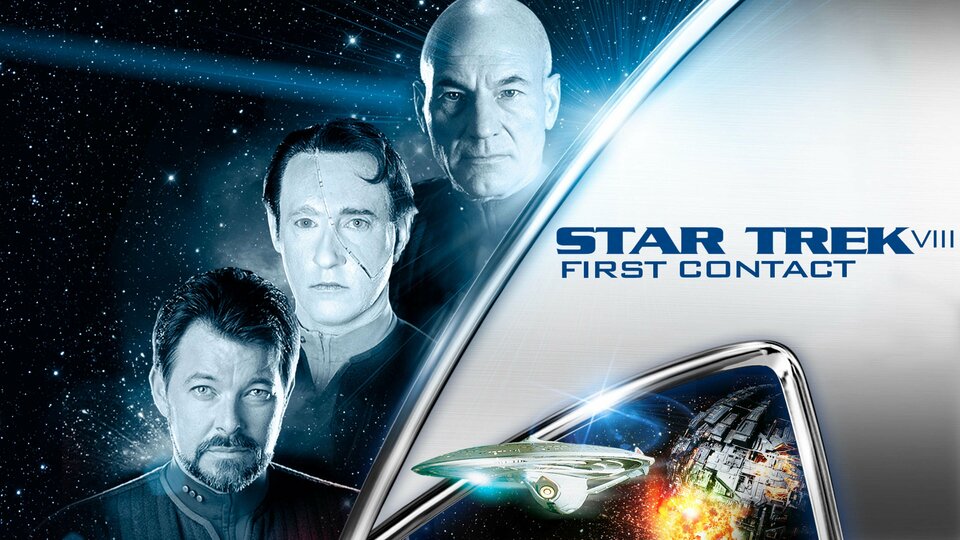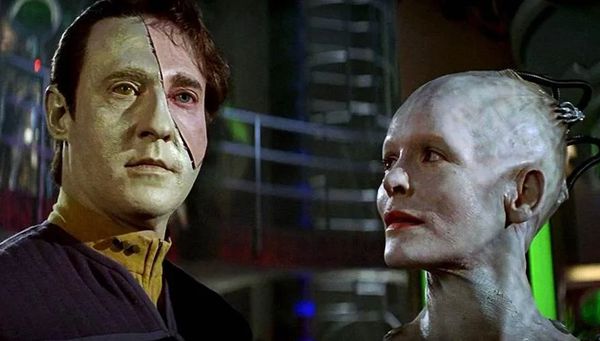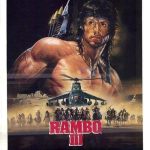“Star Trek: First Contact (1996)”

“Star Trek: First Contact” (1996) is the eighth film in the Star Trek franchise and the second featuring the cast of Star Trek: The Next Generation. Directed by Jonathan Frakes, who also plays Commander William Riker, the film is a fan favorite for its thrilling action, compelling storyline, and exploration of the iconic villainous Borg. First Contact blends time travel, space battles, and deep character moments to create one of the most highly regarded entries in the Star Trek film series.
Plot Overview
The film begins with Captain Jean-Luc Picard (Patrick Stewart) and the crew of the USS Enterprise-E facing one of their most formidable foes, the Borg, a cybernetic race that seeks to assimilate all life into their collective. The Borg launch an attack on Earth, intending to prevent humanity from making its historic first contact with an alien species—an event that catalyzes the formation of the United Federation of Planets.
In a desperate attempt to stop the Borg, the Enterprise follows them back in time to the mid-21st century, just after World War III, where the Borg plan to assimilate humanity before Earth’s first warp-capable flight. This crucial moment is led by the eccentric scientist Zefram Cochrane (James Cromwell), whose warp drive invention would attract the attention of the Vulcans, leading to Earth’s first interaction with extraterrestrials.
While the crew of the Enterprise works to ensure that Cochrane completes his warp flight, Picard must face his personal demons as the Borg invade his ship. With the Borg Queen (Alice Krige) trying to assimilate the Enterprise and reshape history, Picard and his crew fight to save the future.
Key Characters
- Captain Jean-Luc Picard (Patrick Stewart): Picard’s personal history with the Borg, particularly his experience of being assimilated into the collective in The Next Generation episode “The Best of Both Worlds,” plays a major role in the film. His struggle with rage, revenge, and the temptation to destroy the Borg at any cost drives much of the emotional weight of the story.
- Commander William Riker (Jonathan Frakes): As second-in-command, Riker leads the mission on the surface of Earth to ensure Zefram Cochrane completes his warp flight, guiding the scientist through this pivotal moment in human history.
- Zefram Cochrane (James Cromwell): Cochrane is the inventor of Earth’s first warp-capable ship. In the film, he’s portrayed as a reluctant hero, more interested in wealth and survival than in shaping the future of humanity. His character development from a cynical scientist to a historical icon is one of the film’s central arcs.
- Lieutenant Commander Data (Brent Spiner): Data plays a crucial role in the film’s subplot, as he is captured by the Borg and tempted by the Borg Queen, who offers him the chance to experience human sensations by giving him real skin. His internal conflict between his desire for humanity and his duty to resist the Borg’s influence is a major element of the story.
- The Borg Queen (Alice Krige): A menacing and mysterious figure, the Borg Queen is the embodiment of the Borg’s collective consciousness. Her unique connection with Data and her interactions with Picard add a personal and psychological dimension to the Borg’s threat.

Themes
- Time Travel and Historical Impact: The film explores the concept of history as a fragile and pivotal moment, where small actions can change the course of the future. The importance of Zefram Cochrane’s first warp flight is symbolic of human progress and cooperation, making it a key moment for the development of the Star Trek universe.
- Revenge and Forgiveness: Picard’s intense anger toward the Borg and his desire for revenge is a major theme. His journey toward forgiveness and overcoming his personal trauma parallels the greater battle for humanity’s survival and the hope for a better future.
- The Human Experience: Data’s storyline, in which he is offered the opportunity to feel human sensations, ties into the ongoing Star Trek theme of exploring what it means to be human. Data’s temptation to experience physical pleasure and emotion is contrasted with his commitment to his crew and his sense of duty.
- Cooperation and Hope for the Future: One of the core messages of First Contact is humanity’s potential for greatness when individuals work together. Zefram Cochrane’s warp flight leads to peaceful contact with the Vulcans, symbolizing a future where cooperation with other species leads to unity and progress.
Visuals and Action
Star Trek: First Contact is widely praised for its impressive visual effects, particularly in its depiction of space battles and the intimidating design of the Borg. The Borg ship, as well as their assimilation process, is brought to life with chilling detail. The interior of the Borg-infested Enterprise adds a claustrophobic, horror-like atmosphere, emphasizing the terrifying nature of the Borg.
The time travel sequences and space battles are visually dynamic, combining action with the high-stakes tension of protecting the timeline. The film also blends these action elements with quieter, emotional moments, such as Picard’s inner conflict and Cochrane’s self-discovery.
Reception and Legacy
Star Trek: First Contact was a commercial and critical success, hailed as one of the best films in the Star Trek franchise. Critics praised the film for its tight pacing, compelling performances (especially from Patrick Stewart and Brent Spiner), and its balance of action and emotional depth. The film’s ability to explore complex themes while delivering thrilling action and fan service made it a favorite among both casual viewers and die-hard Star Trek fans.
Many consider it to be one of the most accessible Star Trek films for newcomers, as it provides a self-contained story while expanding on the established lore of the Next Generation crew.
Conclusion
Star Trek: First Contact (1996) stands as one of the most successful entries in the Star Trek film series, offering a blend of thrilling sci-fi action, rich character development, and deep philosophical themes. With its iconic villain, the Borg, a time-travel narrative that explores pivotal moments in human history, and emotional stakes that push Captain Picard to his limits, the film continues to resonate with audiences as one of the best examples of the franchise’s potential for storytelling.











